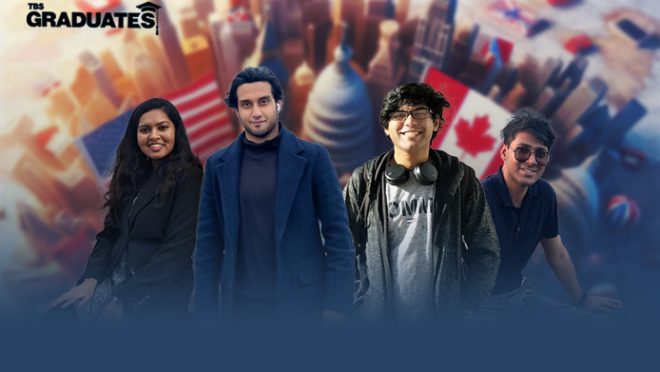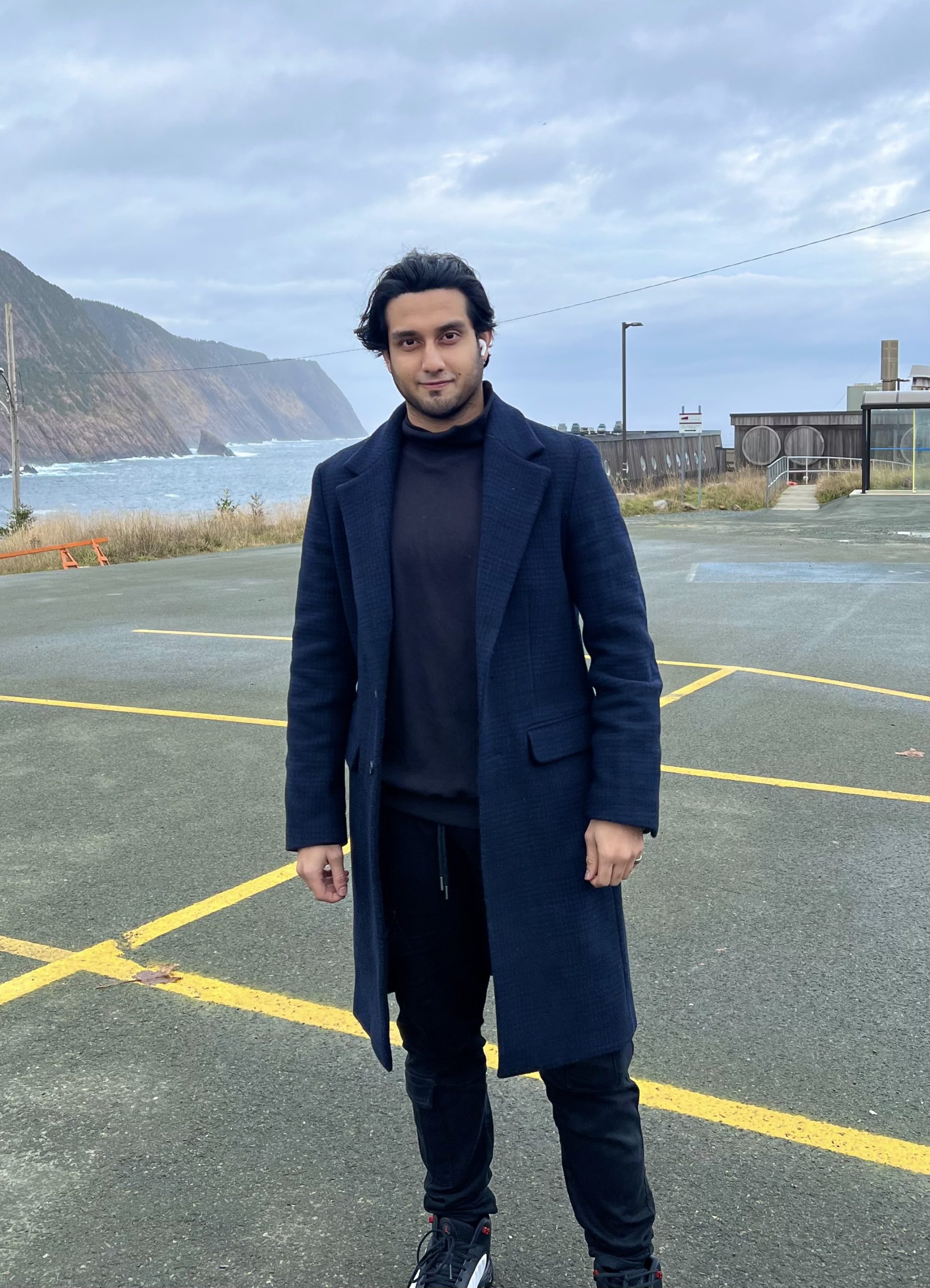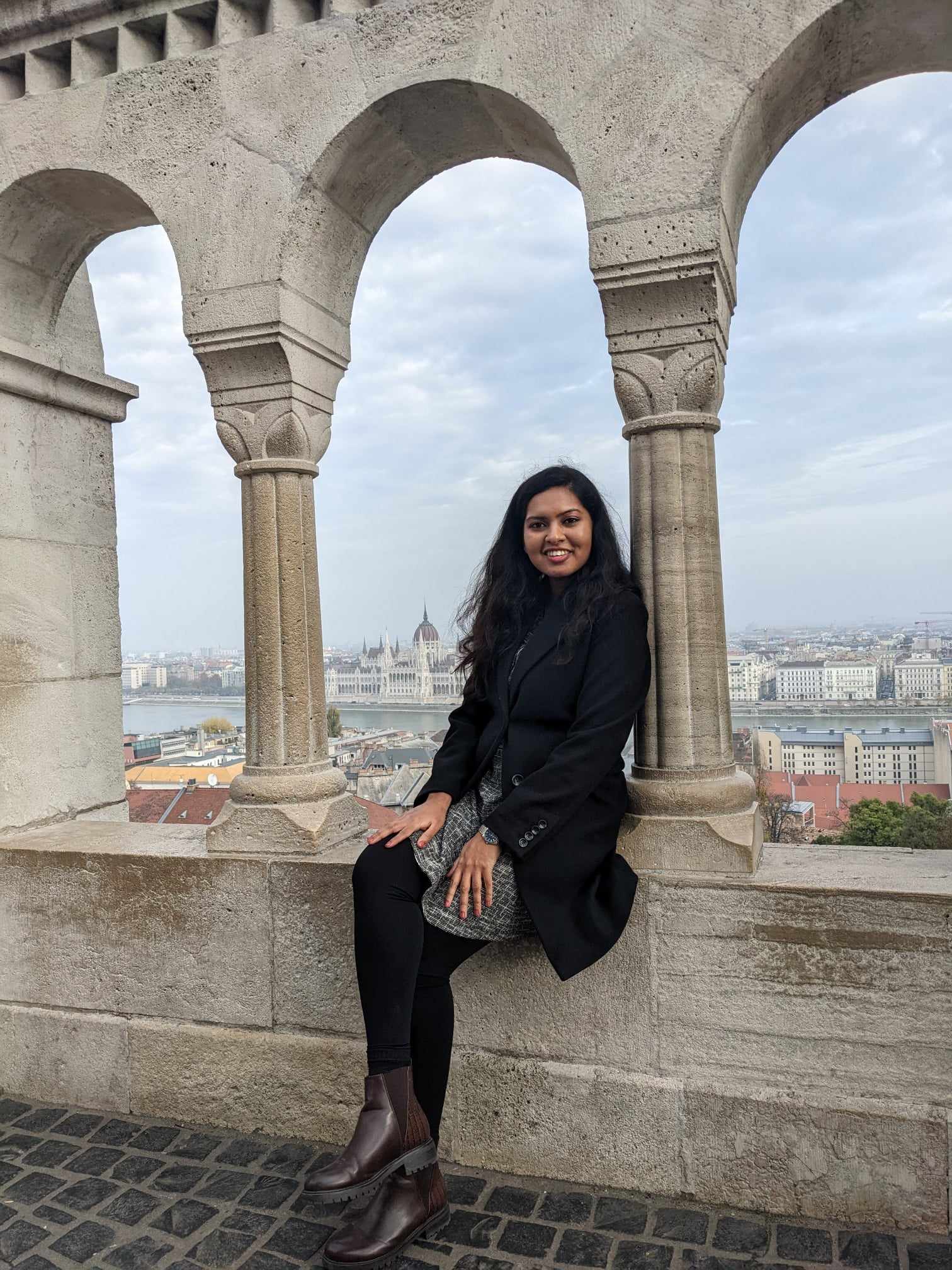Eid celebrations of Bangladeshi students abroad
Eid celebrations of Bangladeshi students abroad

Picture the ideal Eid day – connecting with family, collecting Eidi from relatives, and rendezvous with friends to try out the traditional delicacies. Suffice to say, Eid is about the people. But what of those who do not have the near and dear ones to accompany them? A few such students shared their Eid experience on foreign lands with TBS Graduates.
‘Over time, it gets better’
Over 7,000 miles from the country is Alif Syed Mehrab, an undergraduate student of Dalhousie University in Halifax, Nova Scotia, Canada. Coming back from a 12-hour work shift, Alif sat down with TBS Graduates to share his experience. He stressed over how Eid is and never will be the same for him. Without the azaan on loudspeaker, the entire month of Ramadan serves as a reminder of loneliness. And that homely environment he felt waking up on Eid day is missing.

“Everything, starting from taking a shower, seeing your parents early in the morning, going for Eid salah, hugging your friends and close ones after salah, giving out money to the poor on the way back home, and finally having that breakfast that feels a little weird on eid day after a whole month of fasting – is missing” he elaborated.
A broader Bangali community in Toronto makea Eid day feel closer to home than are Eid festivities in provinces like British Columbia and Nova Scotia. “No matter how good one has it with friends% and financial stability abroad, the feeling of shemai in mom’s breakfast, collecting eidi from relatives and hangouts in new panjabi is missing” Alif lamented. But over time, he has learned to come to terms with the unusual silence of Eid, rekindling the spirit of brotherhood with the Bangali community of his area.
‘The whole night I applied mehendi on their hands’
Anticlimactic is how Anika Shahjabin described the Eid day itself, having spent it as a student of the University of Barcelona. But knowing she would not be able to see her parents, Anika decided to try to make the most out of the day – inviting all the Master’s cohort students to her apartment and sharing her culture with them.
And what better way to connect than with henna on the hands and biryani in the belly? Their positive response and curiosity was a pleasant surprise to her. “Once you start sharing the beliefs and the thought process behind those beliefs, they are really on board with that,” she mentioned.

Fast forward to this year, Anika moved to Germany to live with her husband. And to her surprise, the Eid experience as a couple is mentionably different from one as a student, since the avenue to integrate themselves into the community is greater. They already got numerous invitations from couples to visit on Eid day. Excited about the prospects of trying familiar delicacies, she still misses her parents back home.
The experience of Ramadan in Germany has been a mixed bag so far. On one hand, she recently had the pleasure to attend an open-air iftar organised by the mayor, owing to the large Turkish community there. On the other hand, sometimes it was tricky for her to wrap up work within 5pm, as the culture is not very accommodating of those who fast. Amidst all this, she reminisces collecting salami from her parents, putting on a new dress, and helping her mother set up the dishes on Eid day. “I miss those but I accept that this is a new space in my life.”
‘I found myself to be wrong’
A graduate of IMT Atlantique, France and UPM, Spain, Shafqat Amin Inan spent two Eid-ul-Fitrs abroad, one in Spain and another in Belgium. Luckily, his friends made both Eid days special with their heartfelt cordiality.

He recalls the year 2022, when he had to work all night to submit a big report on Eid day, “Even though I had thought that Eid day would be no special than any other regular day that year, I found myself to be wrong.” After the submission, his Albanian friend pushed him to get out of the apartment and have a celebratory lunch. His compassionate words “You should not miss out on having fun or good food on Eid day just because you are away from your family” brought tears to Inan’s eyes.
Eid next year at Belgium was just as pleasant as most of his European colleagues had a rudimentary knowledge about the culture of fasting. Hence, they were supportive of the Muslim researchers in balancing religious and academic duties. Bonding over cooking in the shared kitchen, Inan shared his Bangladeshi dishes, meeting the Europeans’ curiosity of iftar and sehri rituals. Celebrating Eid away from home may be difficult, but Inan’s experience portrays the notion of friendship and shared moments. “It doesn’t feel like being away from loved ones when people around you are being super friendly and nice to you during your special occasions.”
‘We’ve gotten used to it’
The shared experience of all Muslim students here is the overlap of work and studies with this occasion, for which there is no formal holiday. For Shaikh Jadid, a student of Swinburne University of Technology in Australia, the case is no different. Usually, the teaching staff is very lenient and try to free up the day, even going to lengths to reschedule tests. But this Eid, Jadid has a group presentation which involves 4 other students.

Working a job alongside studies, he took a day off in advance to at least enjoy the day to an extent with the community there. “We used to start Eid with something sweet, so keeping the tradition alive, I’d probably make some dessert to treat my friends.”
Being an introvert, Jadid does not mind being on his own but acknowledges how hard it is on his peers missing their families. He quipped, “Then again, these days in Bangladesh, where it is getting increasingly rare to visit others’ places, it’s nice to see the international students somehow socialising by going to each other’s places.”


